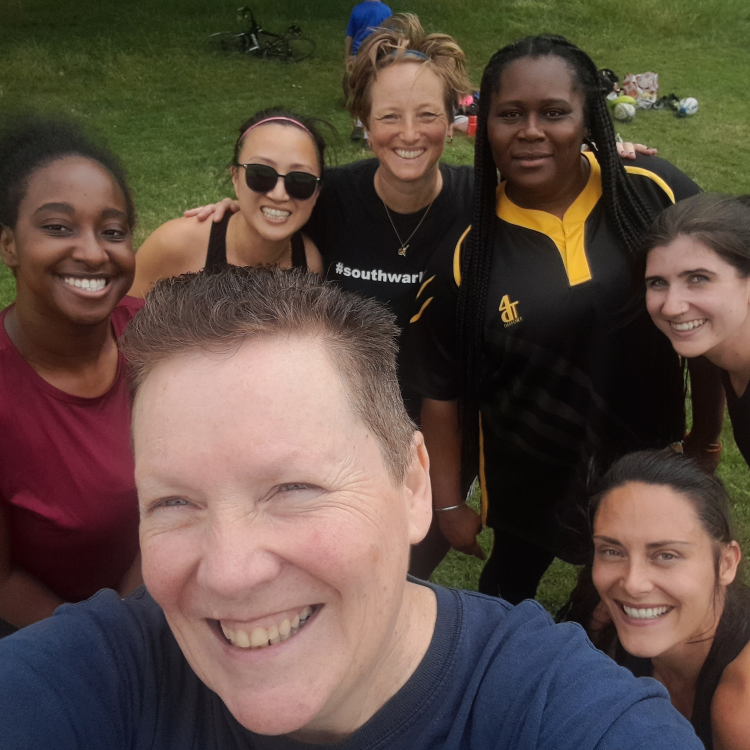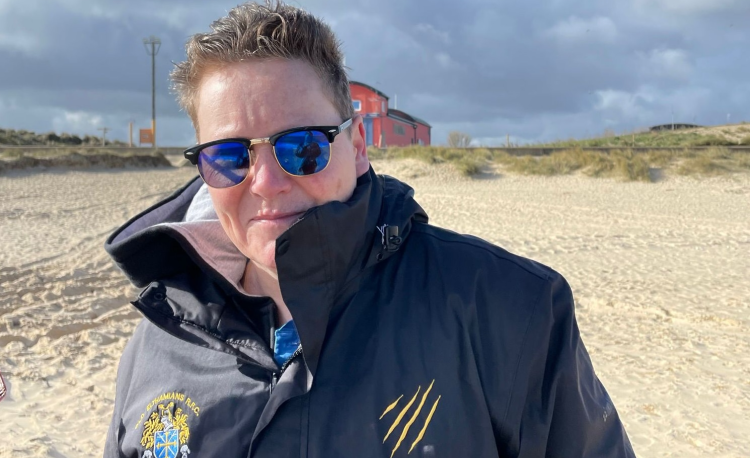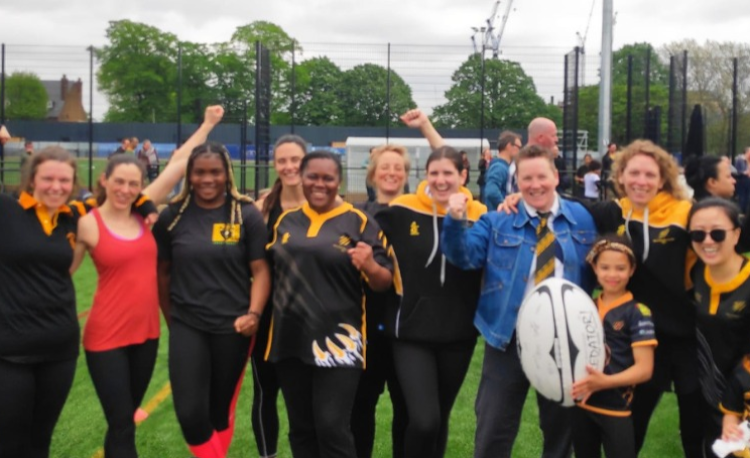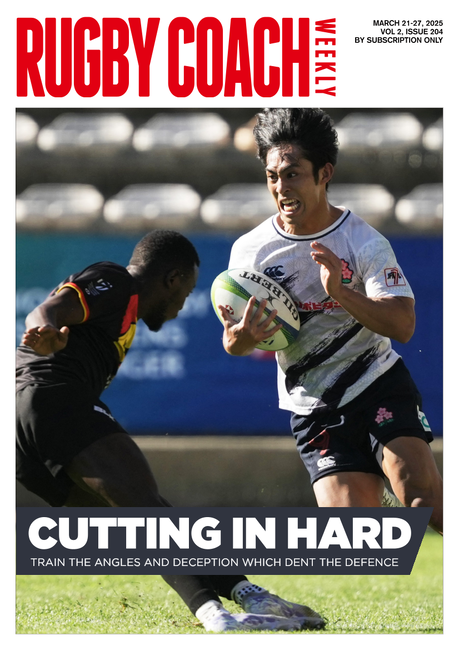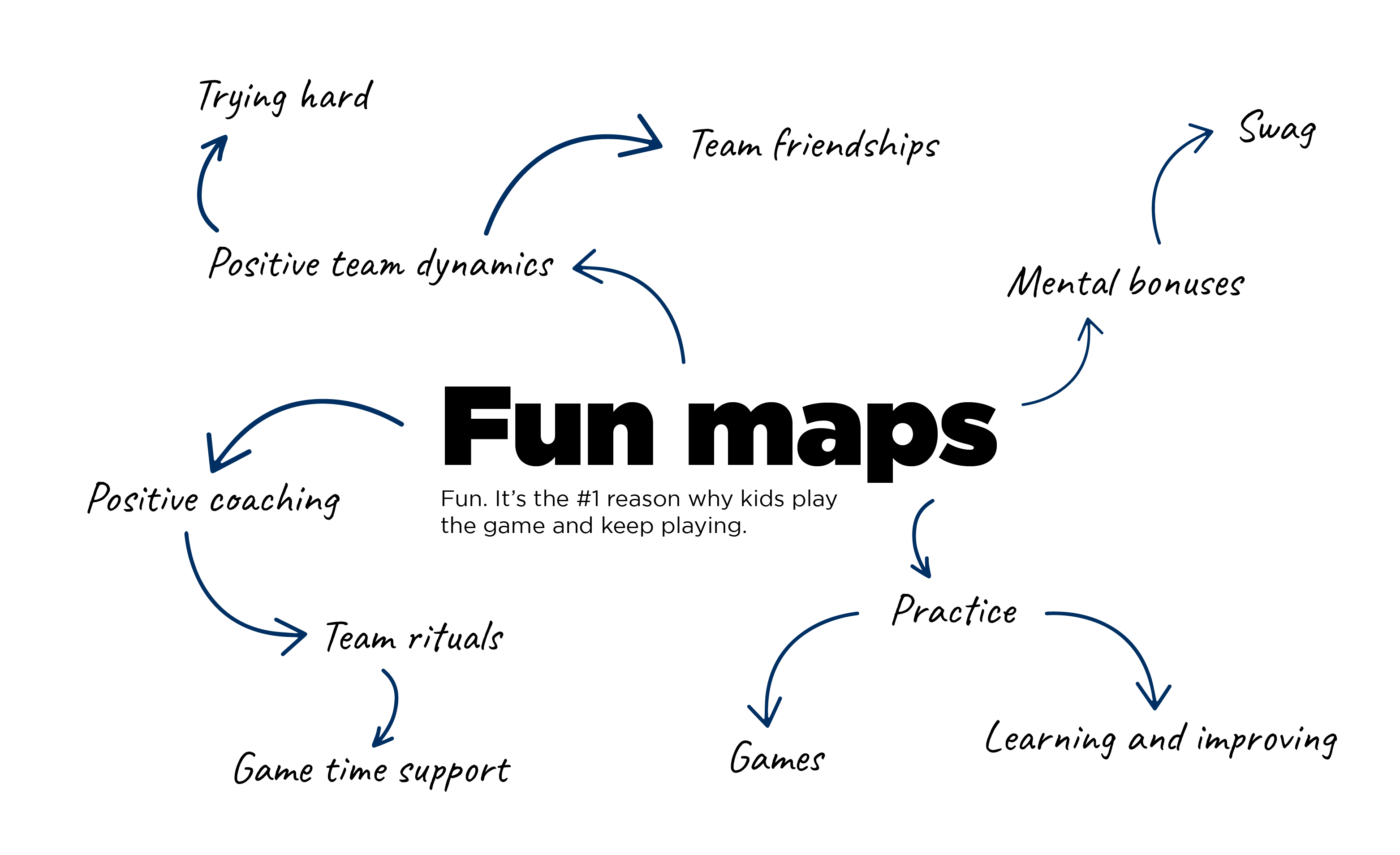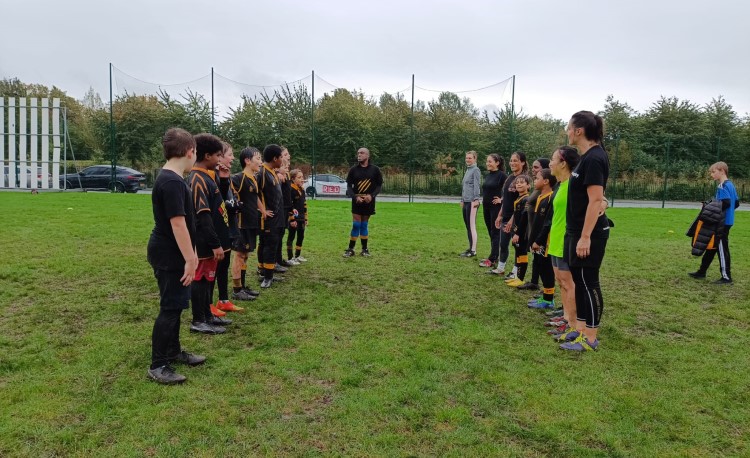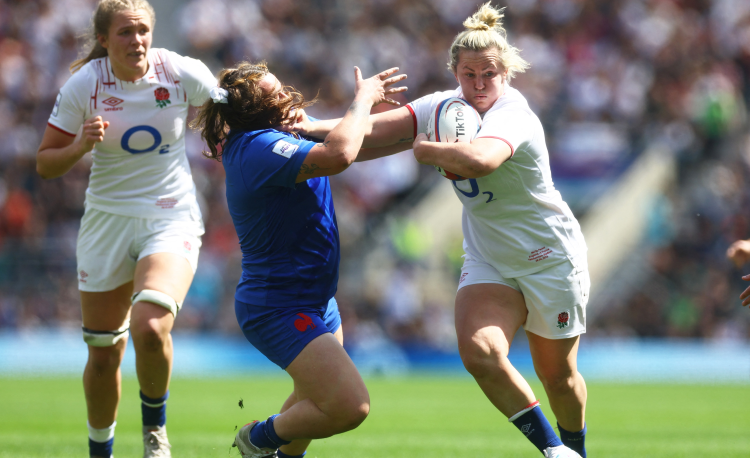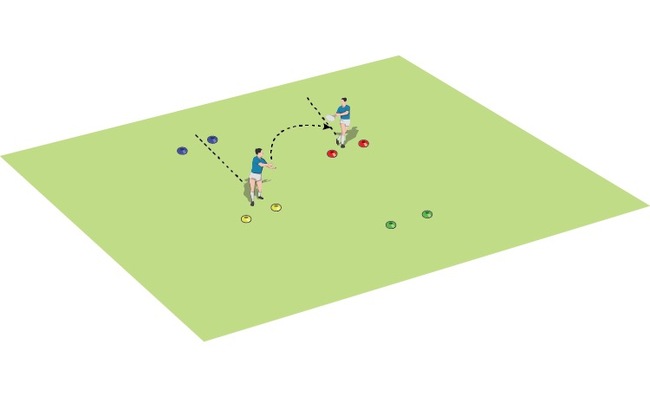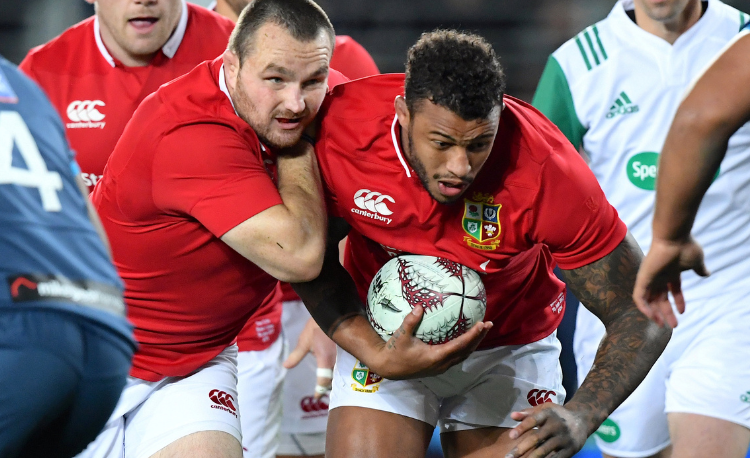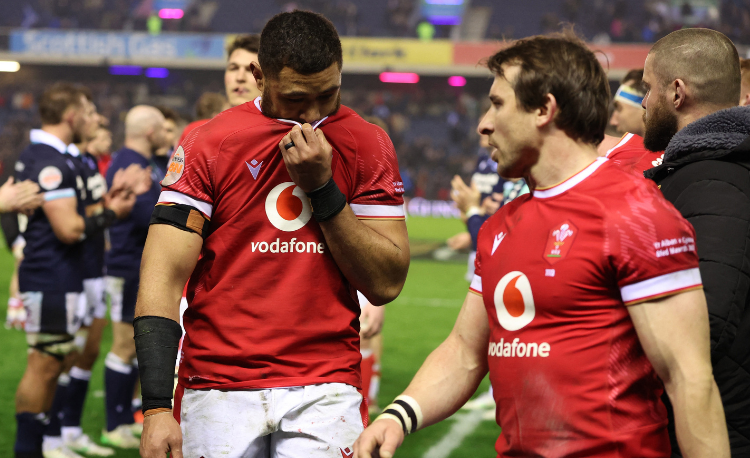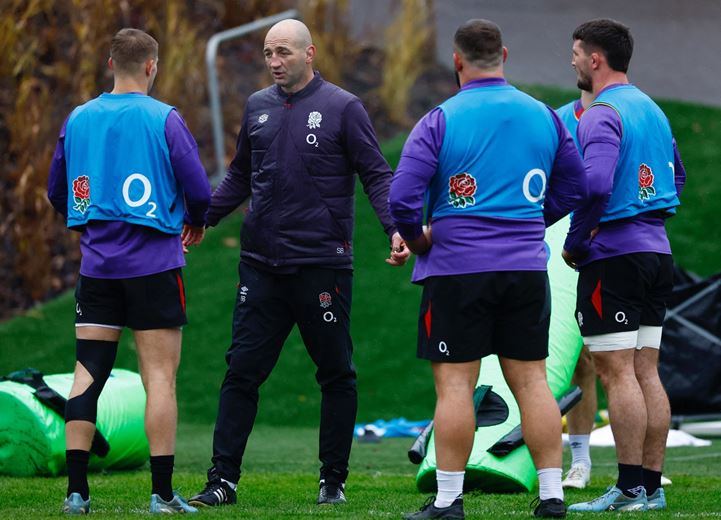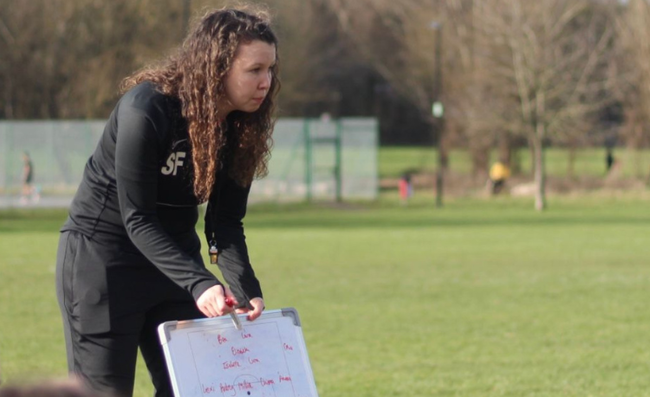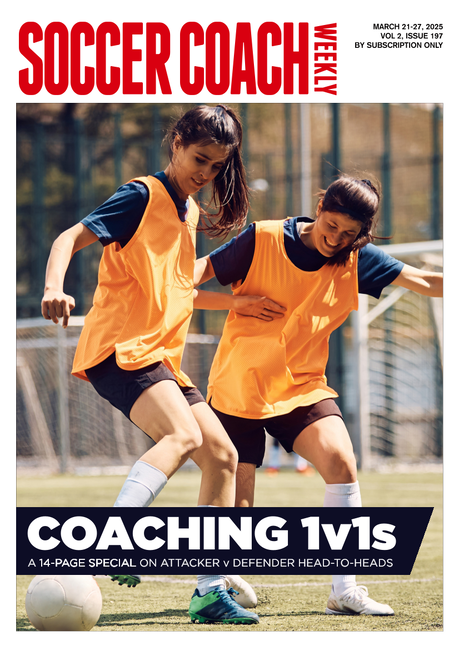'My team rallied after learning I had cancer'
When Maggie Hammond opted to dial down her busy career due to ill health, she was about to receive some devastating news. Her reflections on that period include how coaching kept her going and how her players got behind her.
At the end of January 2023, I resigned from my job. I didn’t know it, but I was about to find out I had breast cancer.
I had felt ill, on and off, for about a year. My plan had been to rest up, get fitter, keep coaching rugby and manage my time better by working for myself, as I had earlier in my career, as a lawyer.
However, after the cancer diagnosis, the only thing that would continue was the rugby coaching.
I decided to tell my players, and some of the other coaches, about my illness. The silent response was universal, followed by huge hugs. I coach adult women, so that’s more than ok.
The conversations were intended to confront many things, including the possibility that it was very serious indeed. I didn’t want to hide away or pretend it wasn’t happening.
I also knew, for some periods, I would not be able to coach and we needed to plan for that, too.
My players, and the club, helped me keep going. I wanted to include in this piece some reflections from the team.
One of the players wrote: "On receiving the news, a cascade of emotions swept through the team.
"What resonated the most was the unwavering support and solidarity that characterises our women’s rugby team."
Her own experiences of breast cancer had been minimal. She added: "This experience allowed me to contribute additional support in ways I hadn’t previously considered, showcasing the strength of our collective bond."
The women that I coach either knew, or had heard of, women with breast cancer. One player was supporting her mum abroad through the end of her treatment.
As women, we have collective memories of women with breast cancer. These include death, debilitating treatment and permanent injury.
With classic rugby humour, I was reassured, joking about wigs, "braving the shave" and the benefits of having no intimate hair to deal with.
"The women that I coach either knew, or had heard of, women with breast cancer..."
Another player wrote: "I felt grateful that Maggie told us. I realised that continuing with coaching would probably help her physically and mentally.
"It brought into focus how playing a team sport can support women, even in middle age."
I think the reference to ’middle age’ is my age – nearly 60 – not the player’s age. Still rude, though!
My team trains all year round. We play touch rugby. In the off-season, we move to a public park in Peckham Rye, south-east London.
We train next to the play park and café. Players bring kids, visitors, picnics and sun cream. Sundays together are part of our schedule.
During my treatment, I had two operations. The second was a shock and a dip into ’it might be getting serious’ territory.
I had a gap, and then 15 sessions of radiotherapy. I couldn’t drive or carry anything heavy for a long while after each surgery, so my players came to pick me and our kit up.
I coached shorter sessions because I was very tired. I had offers of weekly support at practice from my very busy players. They would bring me food.
I messaged the coaching team after I finished treatment to say it was over. I had many messages of congratulations.
The best one was from Crash, who wrote: "Great stuff, Maggie – now you can get back to the pitch and start coaching rugby". I hadn’t stopped – and he hadn’t noticed!
I updated my army of friends and supporters, reports from meetings, next steps and so on.
I realised I knew so little about cancer, a disease that will affect most of us. I felt very strongly that I needed to educate those around me.
"One in two of us will get a form of cancer. One in seven women will get breast cancer..."
One in two of us will get a form of cancer in our lives (NHS/Cancer Research UK). That is a shocking figure.
One in seven women will get breast cancer. The risk factors are being female (99% of breast cancer cases are in women), age (over 50, largely) and a family history. Breast cancer is one of the most common forms of cancer in the world.
There were none of the ‘usual’ signs of breast cancer in my case, just a change in shape. I only saw the doctor because I was ill again, with another strange cold that would not shift. While I was there, I mentioned one breast had changed shape.
I caught my breast cancer early. After I was diagnosed, I used social media and my network to get women to check their breasts.
Since then, three of my friends went to get checked and are now in treatment. Three more women caught it early.
This article is intended to remind women to check for breast cancer. To know what to look for, visit the Breast Cancer Now website.
Related Files
Newsletter Sign Up
Coaches Testimonials

Gerald Kearney, Downtown Las Vegas Soccer Club

Paul Butler, Florida, USA

Rick Shields, Springboro, USA

Tony Green, Pierrefonds Titans, Quebec, Canada
Subscribe Today
Be a more effective, more successful rugby coach
In a recent survey 89% of subscribers said Rugby Coach Weekly makes them more confident, 91% said Rugby Coach Weekly makes them a more effective coach and 93% said Rugby Coach Weekly makes them more inspired.
Get Weekly Inspiration
All the latest techniques and approaches
Rugby Coach Weekly offers proven and easy to use rugby drills, coaching sessions, practice plans, small-sided games, warm-ups, training tips and advice.
We've been at the cutting edge of rugby coaching since we launched in 2005, creating resources for the grassroots youth coach, following best practice from around the world and insights from the professional game.
